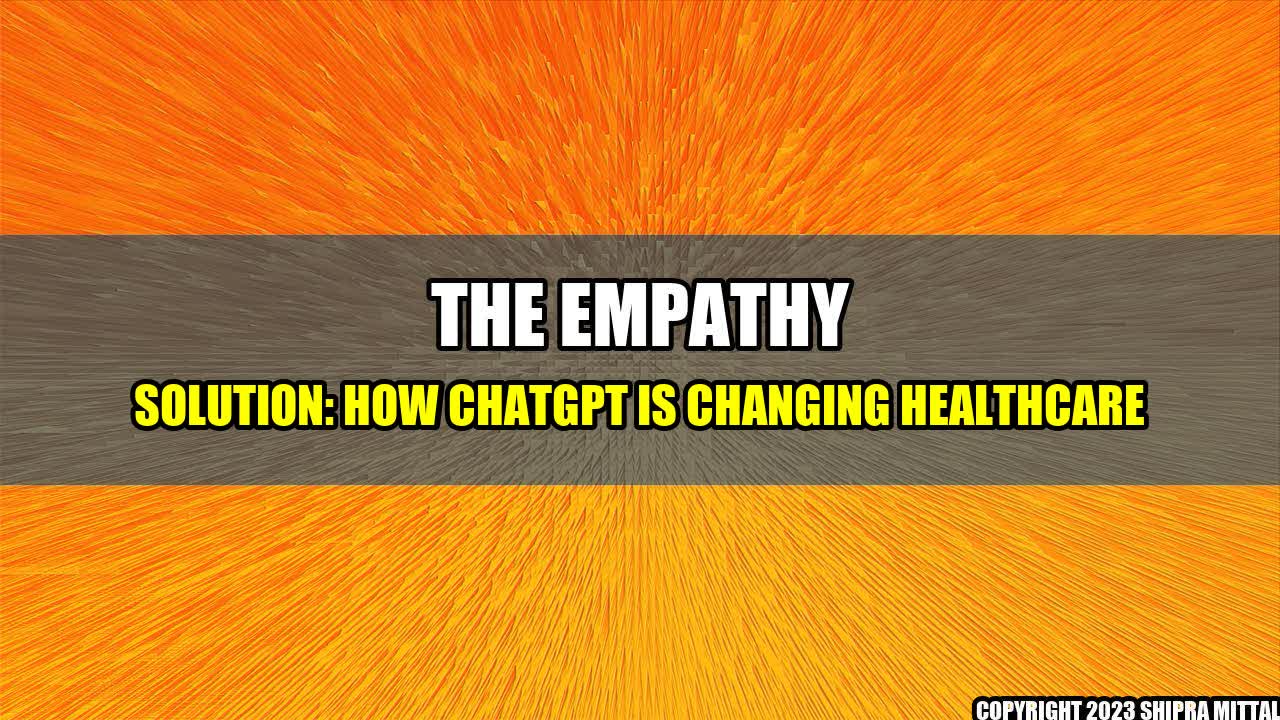It's a familiar sight in healthcare: a waiting room full of anxious patients, each one hoping for the best possible care. But too often, that care can feel cold and impersonal, leaving patients feeling unheard and undervalued.
That's where ChatGPT comes in. This innovative technology uses artificial intelligence to create conversational agents that can interact with patients and healthcare providers alike. And it's quickly becoming the go-to solution for companies looking to improve patient empathy.
One such company is Healthfirst, a New York-based insurer that serves more than 1.4 million people. By deploying ChatGPT, Healthfirst has been able to provide 24/7 access to virtual care, ensuring that patients can get the attention they need at any time of day or night. And by using natural language processing, ChatGPT is able to understand patients' needs and prioritize their care accordingly.
Another ChatGPT success story is Enzyme Health, a telehealth company that connects patients with on-demand medical providers. By partnering with ChatGPT, Enzyme Health has been able to offer a more personalized experience to its patients, with AI-powered chats that feel like real conversations.
And it's not just patients who are benefiting from ChatGPT's technology. Healthcare providers are also seeing the value in conversational agents that can help them perform their jobs more efficiently. One such provider is Humana, a leading health insurer that has been using ChatGPT to streamline administrative tasks and provide clinical decision support to its employees.
All of these companies are making a difference in healthcare by using ChatGPT's technology to improve patient empathy. By offering personalized, responsive care, they're proving that the future of healthcare is not just about technology, but about humanity too.

Akash Mittal Tech Article
Share on Twitter Share on LinkedIn